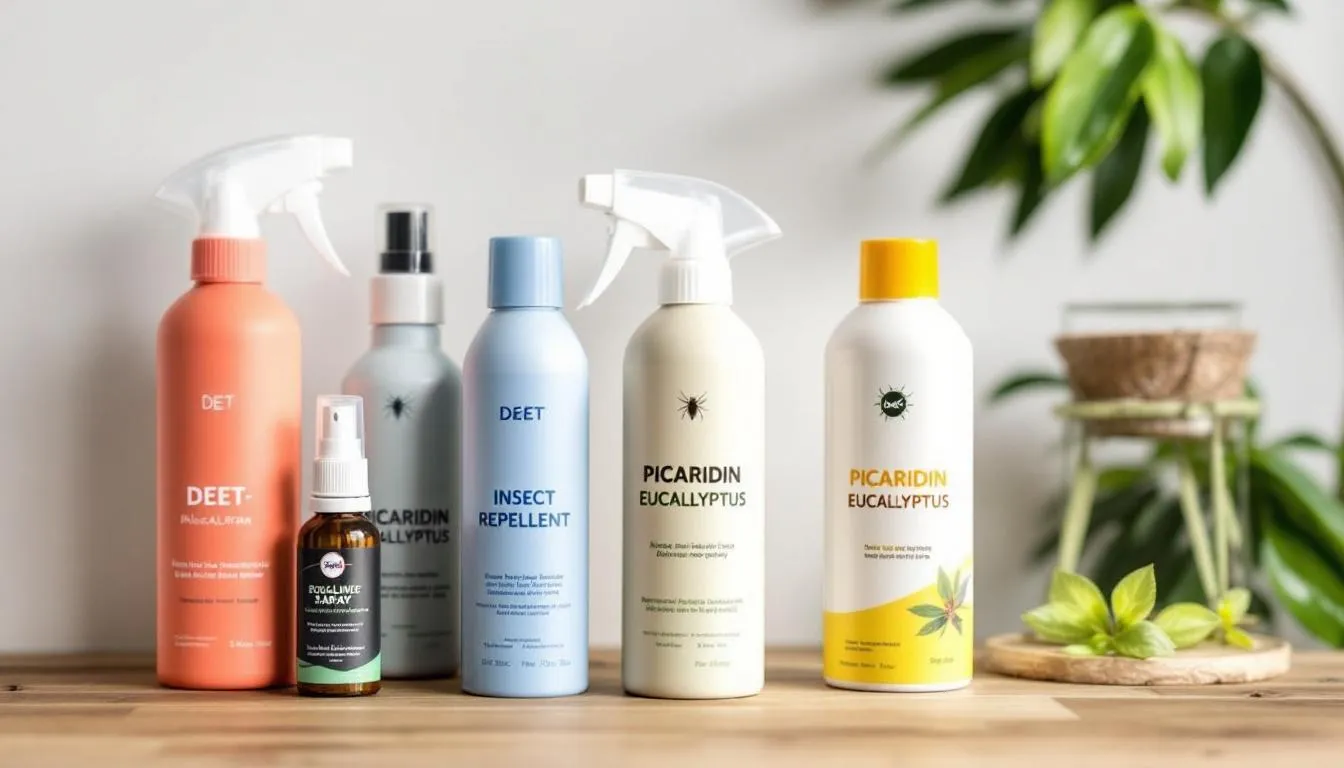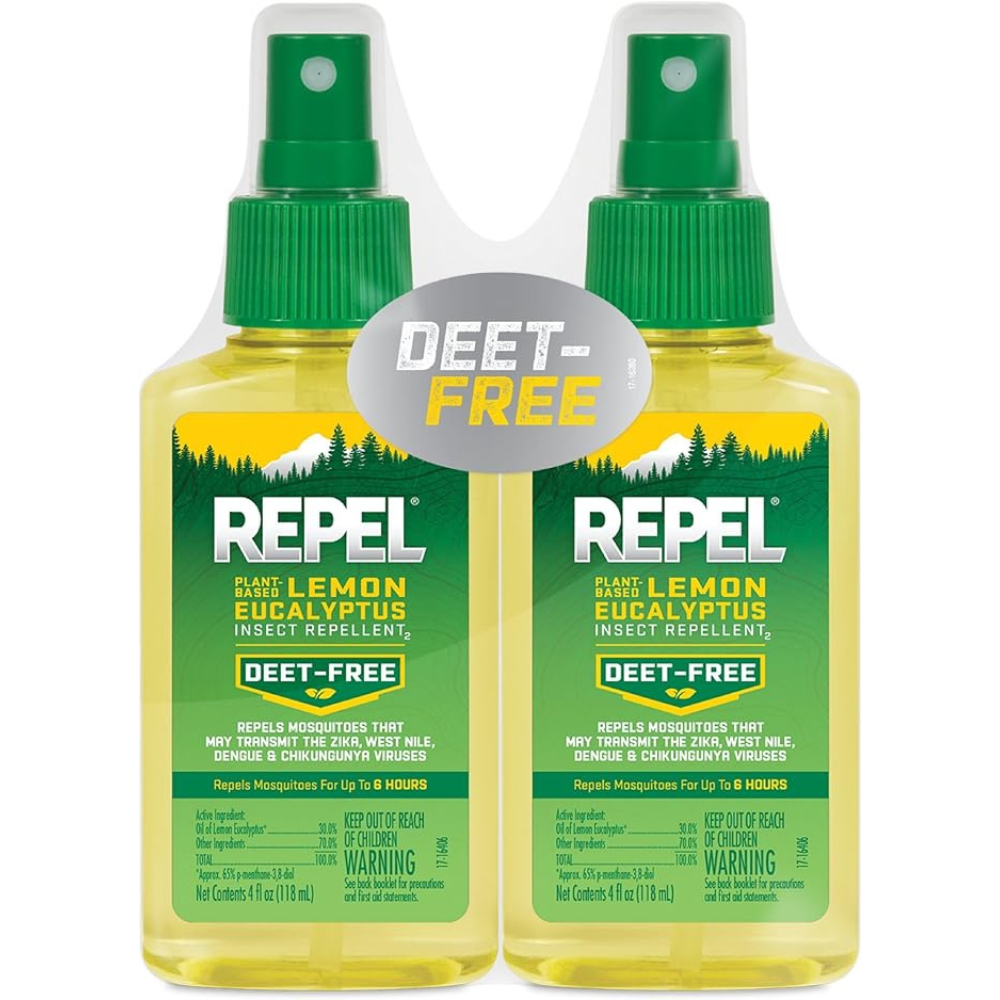The Ultimate Guide to Oil Insect Repellent!
Key Takeaways:
- Natural essential oils like lemon eucalyptus, citronella, and clove oils effectively repel mosquitoes and other insects.
- The repellent efficacy of essential oils varies, with some providing protection lasting up to six hours.
- Plant-based insect repellents are gaining popularity due to their natural ingredients and fewer side effects compared to synthetic alternatives.
Introduction to Oil Insect Repellents
Oil insect repellents have become increasingly popular among those seeking natural alternatives to chemical bug sprays. These repellents, including various mosquito repellents, harness the power of essential oils known for their insect-repelling properties. As consumer demand for natural and organic products grows, oil insect repellents offer an effective way to keep mosquitoes and other pests at bay.
Herbal essential oils are especially valued for their eco-friendly nature and proven effectiveness in repelling insects. Research has shown that these oils can act as larvicides and repellents against mosquito vectors, making them vital tools in combating mosquito-borne diseases.
The use of natural essential oils in repellent formulations is a time-honored tradition. For centuries, people have relied on plant-based insect repellents to protect against mosquito bites and other insect nuisances. Today, the Environmental Protection Agency (EPA) recognizes certain essential oils as minimum risk pesticides, endorsing them as safe and environmentally friendly options for insect control.
The Science Behind Oil Insect Repellents
The effectiveness of oil insect repellents, including plant essential oils, lies in their unique chemical composition. Essential oils contain organic compounds that have been scientifically proven to repel mosquitoes and other insects. For instance, lemon eucalyptus oil is noted for its long-range mosquito repellency, while citronella oil works by masking scents that attract mosquitoes, such as lactic acid and carbon dioxide.
Different essential oils possess varying repellent properties. Oils like clove and thyme exhibit strong repellent effects due to their high concentration of active compounds. These oils can provide comprehensive protection against mosquito bites and other insect attacks, making them valuable ingredients in repellent formulas.
Popular Essential Oils Used in Insect Repellents
Lemon Eucalyptus Oil
Lemon eucalyptus oil is among the most effective natural repellents available. It can repel mosquitoes for up to six hours, making it a preferred choice for outdoor activities. Its active ingredient, p-menthane-3,8-diol (PMD), is recognized by the EPA as a safe and potent repellent. This oil is extracted from the leaves of the Eucalyptus citriodora tree, native to Australia but cultivated in many tropical regions worldwide.
Citronella Oil
Widely used in insect repellents, citronella oil masks the scents that attract mosquitoes, including lactic acid and carbon dioxide. It is commonly found in candles, sprays, and lotions, creating a natural barrier against mosquitoes and other insects. Its refreshing scent also makes it a popular choice for outdoor settings, providing a pleasant atmosphere while deterring bugs.
Clove Oil
Renowned for its powerful repellent properties, clove oil contains eugenol, a compound highly effective at repelling mosquitoes and other insects. Often blended with other essential oils, clove oil enhances repellent efficacy. Additionally, it has antimicrobial qualities, making it beneficial in formulations designed to soothe and protect the skin.
Lemongrass Oil
Lemongrass oil is prized for its pleasant fragrance and effective insect-repelling qualities. Containing citral, a compound that deters mosquitoes and other insects, lemongrass oil is frequently used in sprays and lotions to prevent mosquito bites. It is also valued as a deet free alternative for those seeking to avoid synthetic chemicals.
Peppermint Oil
Peppermint oil provides a cooling sensation and a strong aroma that helps repel mosquitoes and other insects. Its menthol content contributes to its repellent properties. Often combined with other essential oils, peppermint oil enhances overall effectiveness while offering a refreshing scent favored in aromatherapy.
Other Notable Essential Oils
- Tea Tree Oil: Known for its antiseptic and anti-inflammatory properties, tea tree oil also serves as an effective insect repellent. It can soothe skin after insect bites and reduce the risk of an allergic reaction.
- Neem Oil: Extracted from neem tree seeds, neem oil possesses insecticidal and repellent qualities. It is commonly used to repel ticks and other biting insects and plays a significant role in natural pest control.
- Lavender Oil: Famous for its calming aroma, lavender oil also deters mosquitoes and other insects. It is gentle on the skin and helps alleviate irritation caused by insect bites.
- Rose Geranium Oil: With its floral fragrance, rose geranium oil effectively repels mosquitoes and ticks. It also offers skin-soothing benefits, making it a popular ingredient in natural bug repellent products.
- Soybean Oil: Frequently used as an inactive ingredient or carrier oil, soybean oil improves the spreadability of essential oils and enhances the repellent's overall performance.
How to Use Oil Insect Repellents
Oil insect repellents are simple to use and can be applied directly to the skin or incorporated into sprays, lotions, and candles. Whether natural or synthetic, mosquito repellents require regular reapplication to maintain effectiveness. When applying essential oils directly to the skin, always dilute them with a carrier oil such as coconut or castor oil to prevent irritation. Applying mosquito repellent to exposed skin during outdoor activities is crucial to reduce the risk of mosquito bites and disease transmission.
For those who prefer not to apply oils directly, many commercial products contain essential oils as active ingredients, offering effective protection while being gentle on the skin.
Benefits of Using Oil Insect Repellents
Oil insect repellents offer numerous advantages. Their natural composition makes them safer than synthetic repellents, especially for people with sensitive skin or those wanting to avoid harsh chemicals.
Many users also appreciate the pleasant aromas of essential oils, which are often more appealing than the chemical smell of synthetic repellents. Additionally, essential oils provide other health benefits, such as antimicrobial and antioxidant properties.
Moreover, individuals who are especially prone to insect bites, often called mosquito magnets, may find that natural repellents help mask their body's body heat and scent, reducing their attractiveness to mosquitoes.
Potential Drawbacks of Oil Insect Repellents
Despite their benefits, oil insect repellents have some limitations. The repellent efficacy varies among different essential oils, and protection duration depends on oil concentration and application method.
Skin irritation is a potential concern, especially when essential oils are used undiluted or in high concentrations. Performing a patch test and diluting oils with carrier oils can help minimize irritation.
Some users may experience an allergic reaction to certain essential oils, so caution is advised, particularly when using products on children or sensitive individuals.
Comparing Oil Insect Repellents to Synthetic Repellents
When comparing oil insect repellents to synthetic options like DEET and picaridin, several factors come into play. Synthetic repellents are known for their long-lasting protection and high efficacy but may cause skin irritation or raise toxicity concerns.
Oil insect repellents, made from natural ingredients, are generally safer for skin use. While they may not provide protection as long as synthetic repellents, they offer an effective way to deter mosquitoes and other insects without harsh chemicals.
The Role of the Environmental Protection Agency (EPA)
The EPA regulates insect repellents, including those made with essential oils. It evaluates product safety and efficacy to ensure standards are met. Essential oils like lemon eucalyptus oil have earned EPA recognition as safe and effective repellents.
The EPA also provides guidelines for incorporating essential oils into repellent formulations, assisting manufacturers in producing safe and effective products. Consumers can trust oil insect repellents that comply with these guidelines.
DIY Oil Insect Repellent Recipes
For those who enjoy making their own products, creating oil insect repellents at home is simple and economical. Here are a few recipes to try:
Recipe 1: Lemon Eucalyptus Oil Spray
- 10 drops lemon eucalyptus oil
- 2 tablespoons witch hazel
- 2 tablespoons water
- Combine in a spray bottle and shake well before each use.
Recipe 2: Citronella Oil Lotion
- 10 drops citronella oil
- 2 tablespoons coconut oil
- Mix in a small container and apply as needed.
Recipe 3: Peppermint Oil Roll-On
- 10 drops peppermint oil
- 2 tablespoons jojoba oil
- Blend in a roll-on bottle and apply to pulse points.
Safety Tips for Using Oil Insect Repellents
To use oil insect repellents safely and effectively, always perform a patch test before trying a new essential oil. Apply a small amount of diluted oil to a small skin area and wait 24 hours to check for irritation.
Common carrier oils include coconut, jojoba, and castor oils.
The Future of Oil Insect Repellents
With growing consumer interest in natural and organic products, demand for oil insect repellents is expected to rise. Ongoing research continues to explore new essential oils and formulations to enhance safety and efficacy. These advances promise that oil insect repellents will become increasingly popular for insect control.
Case Studies: Success Stories with Oil Insect Repellents
Case Study 1: Outdoor Enthusiast
John, an avid hiker and camper, was frustrated with synthetic repellents that left his skin sticky and irritated. After switching to a lemon eucalyptus oil spray, he enjoyed outdoor activities free from mosquito bites. He also appreciated the natural scent and the peace of mind from using a safer product.
Case Study 2: Family Vacation
The Smith family wanted to avoid synthetic repellents on their young children during a beach vacation. Trying a citronella oil lotion, they were pleased with its effectiveness and the fresh, citrus scent. The parents valued a natural alternative gentle on their kids' skin.
Conclusion
Oil insect repellents provide a natural, effective way to protect against mosquitoes and other insects. With a wide range of essential oils available, options exist to suit different preferences and needs. Whether opting for DIY recipes or commercial products, oil insect repellents offer a safe and environmentally friendly alternative to synthetic repellents.
FAQ Section
Q1: Are oil insect repellents safe for children?
A1: Generally, yes. When used properly, oil insect repellents are safe for children. Dilute essential oils with carrier oils and conduct patch tests before application. Consult a healthcare professional if uncertain.
Q2: How long do oil insect repellents last?
A2: Protection duration varies by essential oil type and concentration. Lemon eucalyptus oil can protect up to six hours, while others may require more frequent reapplication.
Q3: Can oil insect repellents be used on pets?
A3: Some essential oils are safe for pets, but always consult a veterinarian before use. Certain oils can be toxic to animals, so choose pet-safe options and follow instructions carefully.








Member discussion